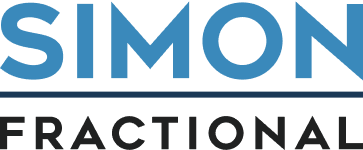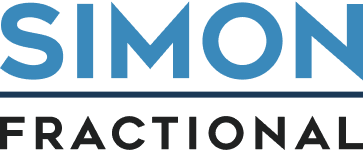As B2B SaaS companies strive for sustainable growth in an increasingly competitive market, aligning revenue-driving teams—sales, marketing, and customer success—has become essential. This alignment is known as Revenue Operations, or RevOps. RevOps creates a seamless approach to revenue generation, ensuring all teams are working toward a shared goal. In 2025, fractional CMOs are poised to play a pivotal role in helping B2B SaaS companies implement RevOps, driving both efficiency and profitability.
Why RevOps Matters for B2B SaaS Companies
RevOps is a strategic framework that breaks down silos between marketing, sales, and customer success. According to Forrester, companies that implement RevOps experience 19% faster revenue growth and 15% higher profitability. For B2B SaaS companies, RevOps not only enhances efficiency but also strengthens customer relationships by ensuring consistent experiences throughout the buyer’s journey.
The Key Benefits of RevOps
- Increased Operational Efficiency
By aligning processes and metrics across teams, RevOps minimizes redundancies and improves resource allocation. According to LeanData, companies with RevOps see a 10%-20% improvement in operational efficiency, allowing teams to focus on high-impact activities.
- Enhanced Customer Experience
RevOps creates a cohesive customer journey from the initial touchpoint to post-sale support. This alignment ensures a seamless transition between teams, resulting in a 22% improvement in customer satisfaction, as per research by Gartner. Happy customers are more likely to renew subscriptions and provide referrals, both of which are critical for B2B SaaS growth.
- Predictable Revenue Growth
With unified data and processes, RevOps provides a clearer view of the sales pipeline and revenue forecasts. This clarity allows companies to make more accurate predictions and develop strategies to fill gaps, leading to more stable revenue growth.
- Data-Driven Decision Making
RevOps centralizes data from marketing, sales, and customer success, providing leaders with a 360-degree view of performance metrics. This centralization enables data-driven decisions, resulting in up to 25% higher campaign ROI, according to HubSpot.
How Fractional CMOs Drive RevOps Implementation
Fractional CMOs bring a fresh perspective and specialized expertise to help B2B SaaS companies implement RevOps. With experience in aligning diverse teams, they can streamline processes and establish metrics that matter. Here’s how fractional CMOs can guide RevOps in 2025:
Establishing a Unified Revenue Strategy
A fractional CMO works with sales, marketing, and customer success to create a single revenue strategy that aligns with company goals. They define shared KPIs, ensuring that each team understands their role in driving revenue.
Optimizing the Tech Stack for Cohesion
Most SaaS companies use a variety of tools for marketing automation, CRM, and customer support. Fractional CMOs evaluate and optimize the tech stack to ensure seamless data flow, reducing friction between teams and enhancing collaboration.
Implementing Data-Driven Metrics and Reporting
Fractional CMOs set up dashboards that aggregate data from each team, creating a single source of truth for revenue metrics. This transparency allows leaders to track progress in real-time and make adjustments as needed.
Enhancing Collaboration through Regular Alignment Meetings
Fractional CMOs facilitate regular meetings with marketing, sales, and customer success leaders to discuss goals, challenges, and opportunities. This alignment fosters open communication and helps teams address issues proactively.
Steps to Implement RevOps with a Fractional CMO
Define and Align Key Metrics Across Teams
Start by establishing KPIs that apply across marketing, sales, and customer success. Metrics like customer acquisition cost (CAC), customer lifetime value (CLV), and net promoter score (NPS) should be universally understood and valued by all teams.
Centralize Data for a 360-Degree View
Integrate data from marketing, CRM, and customer support tools into a central dashboard. This centralized data hub allows all teams to access the same information, promoting transparency and enabling better decision-making.
Foster a Culture of Collaboration
Establish regular meetings and communication channels that encourage collaboration. Fractional CMOs often introduce frameworks like OKRs (Objectives and Key Results) to ensure that all teams are working toward shared objectives.
Regularly Monitor and Optimize Processes
RevOps is an ongoing process. A fractional CMO continuously monitors performance metrics and adjusts strategies based on data insights. Regular reviews ensure that all teams stay aligned and focused on high-impact activities.
The Future of RevOps in B2B SaaS
As the B2B SaaS industry evolves, RevOps will continue to gain traction. In fact, Forrester predicts that 90% of B2B organizations will have a RevOps function by 2026. For companies that may not have the resources for a full-time RevOps team, fractional CMOs offer an effective alternative. By leveraging their expertise, companies can establish RevOps frameworks that drive efficiency, improve customer experience, and create predictable revenue streams.
Conclusion
RevOps is transforming the way B2B SaaS companies approach growth. By aligning sales, marketing, and customer success, RevOps creates a streamlined path to revenue generation, resulting in better customer experiences and higher profitability. Fractional CMOs play a critical role in implementing and optimizing RevOps strategies, offering the guidance needed to bring teams together and maximize growth potential.
Next Steps
If your company is ready to implement RevOps, consider bringing on a fractional CMO to guide the process. With expertise in aligning revenue teams and optimizing tech stacks, a fractional CMO can help your B2B SaaS company create a cohesive revenue strategy that drives sustainable growth. Schedule a consultation to discuss your RevOps goals and discover how a fractional CMO can transform your revenue operations.
Doug Simon
My experience in B2B SaaS started in 2010 when I developed a first-of-its-kind product, creating an entire new category.


